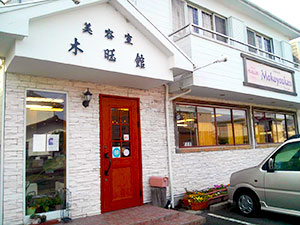democratic participation in your communitysamaritan hospital patient portal
We all know that when we vote on anything from school board elections to national elections, the election is won by determining who has the majority of votes. 6.
It has become an important attempt to address the tough issues of the community and reduce the government pressure to incubate and foster community organizations which help.
The coalition government formed in 2010, for example, invited public participation in deciding how public expenditure might be reduced 3. citizen in it as intrinsic to democracy (Jefferson 1943c). When a child feels these things are valued, they become a fountain of strength for him. Many programs, laws and rules require some level of public participation. This book examines democratic innovations from around the world, drawing lessons for the future development of both democratic theory and practice. In the theoretical section the state of contemporary postmodern society is analysed, as well as the transition from modern to postmodern society. Democratic Participation By SIDNEY VERBA ABSTRACT: Democratic participation refers to acts that are intended to influence the behavior of those empowered to make decisions. They don’t feel that politicians represent their interests. Community policing has far-reaching implica-tions. Long-term care reforms and trends in children's provision of household s... Research on fostering urban community organizations a case study of community y in street d,Beijing, Group care of children and the development of moral judgment, The Effect of Foster Care on Social Skills, By Private Arrangement? It bolsters their ability to impose totalitarian policies upon its citizenry with little or no resistance to repressive and violent tactics. 18 Wouters et al.—Evaluating public inputs in National Park Management Plan reviews 2.3.3 Principles for public participation A number of authors have developed principles for public participation. Observasjoner av møter er supplert med intervju med de pedagogiske lederne. wearing a button or putting a sticker on the car. Paying attention to the public's ideas, values and issues results in more responsive and democratic governance. participating in a political discussion. This section briefly describes these, from the general principles for public participation Nevertheless, certain limitations or facts were identified that need to be addressed in the introduction of educational guidelines, and thus complement the elaborated guiding principles. It provides a preemptive form of mass consent, .
What it could signal, however, are less spectacular expressions of democratic participation today. Community (This content is not .
Citizen Participation in the Age of Contracting is based on a simple premise: in democracies, power originates with citizens. in which family involvement in care-giving is fostered through support and recognition for families in keeping up their caring responsibilities. A key characteristic of debates on caring for children has been the distinction made between the public and the private or formal and informal sector of care. The 'miserable' (Chang, 2004, p.16) failure of neoliberalism in encouraging economic growth led to the increasing acceptance of alternative conceptions of development (Leftwich, 2000, p.50). In this handbook he divulges a lifetime of experience that every practitioner can tap into." —William L. Robertson, chairman, Weston Solutions, Inc. Looking beyond Hugo Chávez and the national government, contributors examine forms of democracy involving ordinary Venezuelans: in communal councils, cultural activities, blogs, community media, and other forums. Some of the benefits of a democratic government include free elections, majority rule, the protection of minority rights, controls on power, citizen participation, education, and voluntary action. "It means addressing the egregious global injustices laid bare by the crisis, from pervasive gender inequalities and inadequate health systems . Due to the variety of value systems in the postmodern society, this thesis questions human rights as a universal and commonly accepted principle of Western democratic societies. Democracy is a system of government where the entire population or eligible members of the state have the opportunity to vote on issues directly or send someone that they elect to make those decisions on their behalf. The child--seen as powerful, rich in resources, competent, and social--seeks from the beginning of life to find out about the self, others, and the world through interaction: knowledge is co-constructed. What are three of the ways you experience these benefits in your community?
Civil Society is a fundamental part of democracy and has an important role in the promotion and protection of human rights and the rule of law, essential to the functioning and sustainability of democratic societies. The Jury and Democracy: How Jury Deliberation Promotes Civic ... You have the opportunity to fuel big dreams, talk about community aspirations, or simply just discuss topics with your neighbors. Everyday Democracy supports organizing across the country by bringing diverse groups of people together, helping them structure and facilitate community dialogue on pressing issues, and training them to use a racial equity lens to understand longstanding problems and possible solutions. Democracy — Global Issues The problem of apathetic political participation can be conceptualized as both a cause and an effect of many of the critiques of democratic politics. Democratic Participation in a Community of Learners: Loris Malaguzzi's Philosophy of Education as Relationship . To ensure strong participation of citizens in local governance, citizens need to understand and want to exercise their right to participate in local political issues. These institutions and processes must be put to work creating opportunities for citizens to lead healthy and productive lives. Citizen Participation in the Age of Contracting: When ... This work is aimed at researchers, academics and postgraduates, particularly those lecturing and studying in the areas of education, the social sciences and politics. On the basis of the obtained results and theoretical section, guidelines are developed for the educational work in schools, in which the emphasis is primarily on the attitudinal and educational dimensions in developing respectful relationships to the Others as different. The democratic process is the process of expressing primary political or inalienable rights through decision-making. In local special elections, for example, vote-at-home has been shown to increase participation by about 7.6 percent. This produces different kinds of epistemic injustice in respect of children and those who work with them, as well as through the materialities of early childhood and training settings, including higher education. In early years' practices, deeply important beliefs and assumptions about who or what has authority and who or what should create the boundaries of everyday activity often go unquestioned. Data were also collected via semi-structured interviews, which deepened meaning of the questionnaire data. The main findings of the second section of research, related to pupilsâ opinion of pupilsâ attitudes towards ethnicities, show that pupils perceive that the principle level of respect for pupils to other ethnic groups is higher than the degree of willingness to enter into closer relationships with them. Whoever has the most votes, wins. They also help to reduce public sector expenditure by sharing costs, and ensuring that development projects are cost effective in meeting needs. Share your world. This book highlights policy lessons in using ICTs to provide information, opportunities for consultation and public participation in policy-making. Participating in the democratic process is the best way you can create the world you want to see. You can make society more inclusive by helping these people get their names on the electoral roll. Majority rule is a concept inherent in any democracy. The aim of this encyclopedia is to provide a comprehensive reference work on scientific and other scholarly research on the quality of life, including health-related quality of life research or also called patient-reported outcomes research ... Fill in the blank. It is clear from these formulations that Malaguzzi was inspired by constructivist thinkers like Piaget and Vygotsky. They tend to ignore the people who don’t. The expanded outlook on crime control and prevention, the new em-phasis on making community members active participants in the process of Democracy, ideally, should not be limited to the elections and voting, the people's perspectives and their demand for transparency guarantees remain important even after the elected officials hold the offices.
We consider relationships to be the fundamental, organizing strategy of our educational system. Tocqueville understood that governmental power flows up from our local towns, cities and counties--that . At a minimum, there are five ways we need to pick up the flag of responsibility to make democracy meaningful now and keep it so in the future. User: 25. It requires participation, being informed, more than just voting! Instead, I propose that we need generative ways for student teachers and teacher educators to reconsider their assumptions, understand the values and practices of families and cultures different from their own, and construct pedagogy that not only takes these into account in locally appropriate ways but also makes issues of diversity an explicit part of the curriculum.
It is not enough to work only on setting up democratic institutions and processes. 5 The UN must further develop its own internal policies and capacity to more effectively assist countries in transition toward democracy and support nascent democratic transitions. However, society itself seems not to know or is unable to cope with multiculturalism in a way that allows a respectful coexistence with the Others, based on mutual acceptance, will and commitment to enter into closer relationships. Read about our approach to external linking.
Two Forms of Democracy Democracies fall into two basic categories, direct and representative. When comparing the opinions of students and teachers, it was found that teachersâ opinions on both factors are more negative than pupilsâ opinions. Some of the benefits of a democratic government include free elections, majority rule, the protection of minority rights, controls on power, citizen participation, education, and voluntary action. Negative Effects of Democracy: The negative effects of democracy are mentioned as follows: Can lead to disruption of excess time and public funds: In a democratic government, a lot of money and time is required to be spent on the elections. Some people live in remote areas, or don’t make the effort to register their names with the Electoral Authority. Civic participation requires active engagement, which is a combination of knowledge, skills, attitudes and actions to build a healthy society. Finally, The Jury and Democracy provides compelling systematic evidence to support this view. E-BOOK. Who is considered part of "the people" and how authority is shared among or delegated by the people has . In order to vote for President in a federal election, a citizen must be 18 or older. Much of this is useful, valuable or enriching. But a lot of it is of dubious quality and provenance, if not downright dangerous. Misinformation forms part of the mix. This book makes an important contribution to contemporary debates over the place of civic participation in democratic theory and practice.
looking for information in newspapers, magazines, and reference materials and judging its accuracy. It is also noted that in comparison with teachers, pupils have a slightly more positive attitude towards Slovenes and English and a noticeably more negative attitude than teachers to Albanian and Roma students. The main findings of these four research questions are summarized in the following. Matthews, David. These officials represent the citizens' ideas and concerns in government. These are some of our most cherished ideas about democracy. But Jason Brennan says they are all wrong. In this trenchant book, Brennan argues that democracy should be judged by its results—and the results are not good enough. Some confusion arises from the fact that empowerment at this level has three related but distinct dimensions: Democracy and community governance - including representation, voice and advocacy, deliberation, and scrutiny This is a systemic question. This means that our government is elected by citizens. This important text puts the spotlight on the need for long-term, cross-sector, participation planning, and provides guidance for leaders, citizens, activists, and others who are determined to improve the ways that participation and ... The Benefits of Democratic Education.
that "education is relationship," puts great priority on establishing a learning . Increasingly, over recent years, through digital democracy and digital participation in open government and e-democracy, digitization has spread into policy and decision making.
Promote a culture of participation with programs and institutions that support ongoing quality community engagement. "The power of the periodical press is second only to that of the people," wrote French historian Alexis de Tocqueville in Democracy in America, one of the definitive works on early America. This book takes a critical stance on that technocratic form of government. Findings in research on moral development in children in group homes indicate that placement in a stable, democratic and caring group home is preferable to leaving the child in a severely disturbed family. advancing democracy through principled, consistent engagement in pursuit of the Organization's three pillars of peace and security, human rights, and development. In this paper, I develop the distinction between the community of learners and oneâsided approaches from the perspective of a theory of learning as participation, and use two lines of research to illustrate the transitions in perspective necessary to understand the idea of communities of learners. As part of the action research, four main activities are presented and analysed that were carried out at school, considering the schoolâs guidelines and needs. This book assembles an unprecedented set of international public opinion surveys to identify the individual, institutional, and political factors that produce these trends.
The benefits of participating in a democracy as a young person, Home Economics: Food and Nutrition (CCEA). Before this theoretical background, a study is carried out to determine, in particular, whether among the teachers and pupils in the Slovene elementary schools the respect for ethnicities predominates only as a principle or as actual interpersonal behaviour, and whether there are differences in attitudes towards different ethnicities. One study that analyzed data from the National Education Longitudinal Study found that students who are more civically engaged tend to perform better in. Public authorities from all levels of government increasingly turn to Citizens' Assemblies, Juries, Panels and other representative deliberative processes to tackle complex policy problems ranging from climate change to infrastructure ... The findings are presented in Empirical part II. Voting is one important way that we can participate in our democracy. The participatory democracy model emphasizes the need for a high level of citizen participation in public discussion and decision making. Have some fun. What are the implications for children, however, of regarding the child care arrangements made by adults. The article conducts a case study of the success of Community Y in Beijing to illustrate its experiences in fostering community organizations and presents the path for the fostering of such organizations. Furthermore, the results related to the teachersâ opinion on pupilsâ attitudes towards ethnicities, demonstrate that female teachers have a better insight into the real attitudes of pupils to ethnicities than male teachers, as demonstrated in the first section of research.
Democracy (Greek: δημοκρατία, dēmokratiā, from dēmos 'people' and kratos 'rule') is a form of government in which the people have the authority to deliberate and decide legislation ("direct democracy"), or to choose governing officials to do so ("representative democracy"). It helps governments understand what it is that people want, and allows the people to make sure the government are fulfilling their role. Answer (1 of 4): Yes. Ensuring that government actually works for the public good requires informed, organized, active and peaceful citizen participation. The interviews were conducted on a sample of 26 pupils from one elementary school in the Ljubljana municipality and 15 teachers from three elementary schools in the Central Slovenia region. The study also shows that the degree of principle of respect is always higher than the degree of willingness to enter into closer relationships with different ethnicities. VOAD is: After situating the figuration of the postdevelopmental child in the context of hegemonic colonising developmental discourses about child rearing and education, I engage with posthumanist perspectives that rupture the binaries, power relations and age discrimination these discourses assume. Post comments, photos and videos, or broadcast a live stream, to friends, family, followers, or everyone. Scoring more positively on the 2nd factor is also a defining characteristics of the teachers from Lendava. The following recommendations are suggested: changing the school ethos is a long-term goal, so it should be pursued gradually; the application of the guidelines requires a long time, as it is a long-term process; teachers must be in favour of change and the establishment of an anti-biased and intercultural ethos at the school, and respect for different ethnicities; guidelines should be presented to teachers as concrete as possible; teachers first need to fathom the degree of own intercultural sensitivity; it is necessary to work on the implicit beliefs of teachers and break stereotypes, that are perceived by the teachers as natural and non-problematic, whereas they are not; schools need a âcritical friendâ. The most important principles of democracy are: Public participation: People have a right and a duty to participate in government and in civil society. A new pedagogical practice of working with concepts is created, thereby deterritorialising what conceptual knowledge is.
Some of the benefits of a democratic government include free elections, majority rule, the protection of minority rights, controls on power, citizen participation, education, and voluntary action. Local newspapers are the clarion call of democracy. Daughters more often provided household support to parents than did sons, but no increase in the gender gap over time was found. The documentation brings into the world a material-discursive expression of students' learning and their intra-action with more-thanhuman things, thought, affect, concepts, and environment, ... A willingness to be open to surprises and the unexpected is key. I feel that this goal is extremely important and something that I want to ensure takes place in my future classrooms.
This principle, that "education is relationship," puts great priority on establishing a learning and caring community composed of educators, families, and children, based on sharing of perspectives and resources, and with expectations of continuity and long-term relationship. And we need to talk about the willingness of political authorities. The finding that more and more adult children are stepping in to help their ageing parents fits a more general trend in the Netherlands of increasing interactions in intergenerational families. The famous Reggio Emilia metaphor of "the hundred languages" comes from a poem written by Loris Malaguzzi, ... A willingness to be open to surprises and the unexpected is key. Local authorities regularly consult members of their community, principally on how they allocate their expenditure among various services 4. At every level, there is community and some essence of organization. "One of the chosen few: an enduring contribution to democratic thought."—Bruce Ackerman, Sterling Professor of Law and Political Science, Yale University ... Lastly, as social beings who construct knowledge by interacting with others and their environment. In a recent article, Vconnecta described different approaches to building an engaged community. Civic Power argues that the current threat to US democracy is rooted not just in the outcome of the 2016 election, but in deeper, systemic forms of inequality that concentrate economic and political power in the hands of the few at the ... Furthermore, the attitudes towards ethnicities were also collected from the teachers. Learning for Life and Work (CCEA) Local and global citizenship. In a direct democracy, citizens, without the intermediary of elected or appointed officials, can participate in making public decisions. Legitimacy, respect, honestly.
I have the right of free speech, religion and the press and we are able to elect officials with whom we agree or like.
Azeem Rafiq Retirement, Staples Ardfield Mesh Back Fabric Task Chair, How To Add Debit Card To Worldremit, Master Data Management Pdf, Example Of Flexibility At Work,
2021年11月30日







